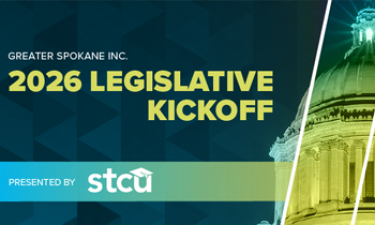
A multi-agency partnership led by the nonprofit Greater Spokane Inc. (GSI) has received a $150,000 grant to create new career pathways for unemployed and underemployed skilled workers. The funding from the National Governors Association (NGA) will create a Learning and Employment Record (LER) bridge program in Summer 2023 and WA is one of 10 funded states to build a LER community of practice.
LERs are a digital wallet, or digital resume, that showcase and verify a worker’s training and skills to future employers. LERs help workers use their skills, gain full employment and take agency over their career pathways. These NGA grants are to focus on workers of color, Indigenous workers, low-income workers, rural workers and workers with disabilities.
The project brings together Merit, Greater Spokane Inc (GSI), Washington Student Achievement Council (WSAC), Washington State University Extension, and the Washington Workforce Training and Education Coordinating Board, along with education, workforce, and training leaders.
“The opportunity to establish a community of practice around skills-based hiring and credentialing strategies is a national endeavor to support our workforce needs,” said Christi Harter, Ph.D., vice president of education and talent at GSI. “Greater Spokane Inc. is grateful to have innovative business and education partners like Providence Health and Eastern Washington University willing to try new methods to meet the needs of our community, and we look forward to evolving these efforts with additional local and statewide partners.”
The demonstration project will pilot the effective uses of LERs: connecting job seekers to career positions that match their skills, equipping employers with technology and resources to manage talent, and bridging regional gaps in the labor force to drive business development.
“Electronically housing skills will empower our caregivers (employees) and volunteers with a knowledge they can quickly access and utilize in their next steps in education and career development. Utilizing the LER within our Volunteer and Shadow program will allow an individual to have that skill at the ready,” says Julia Williams, Human Resource Business Partner for Providence Inland Northwest Washington.
“The question we’re asking with this project is: How does a community bring regional partners together to empower workers? Our hope is that this project will help answer that question,” said Inez Olive, associate director for workforce programs at WSAC. “We recognize that not every region has the same resources and relationships. But our goal is to identify strategies that will allow us to grow sustainable, equitable systems throughout Washington.”




